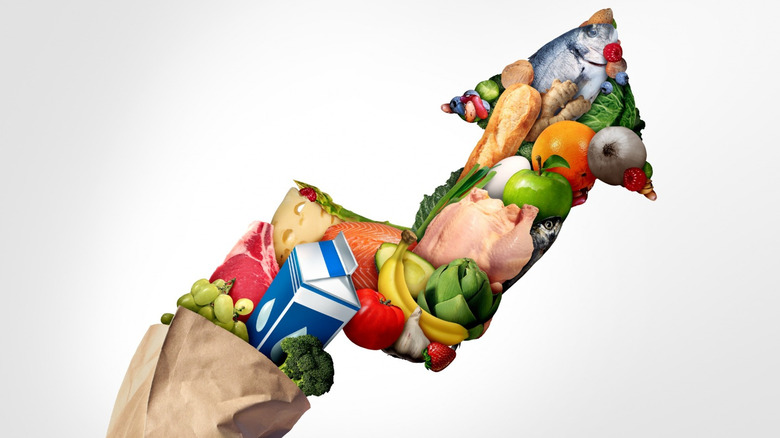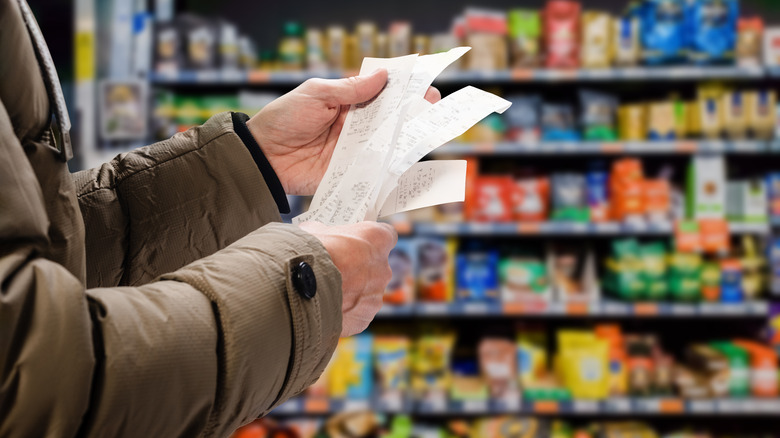Why The Food Inflation Crisis Is So Concerning
Inflation has been steadily rising around the world in recent months. The ongoing crisis in Ukraine has played a significant role in increasing inflation rates, which are set to hit 6.7% in 2022, double the average global inflation rate of the past ten years. "The war in Ukraine — in all its dimensions — is setting in motion a crisis that is also devastating global energy markets, disrupting financial systems and exacerbating extreme vulnerabilities for the developing world," United Nations Secretary-General António Guterres explained (via UN News). This affects everything, including inflation hurting already-strained food banks.
The steady rise in inflation has had a significant impact on the cost of living around the world, with the inflation rate in the United Kingdom reaching its highest point since 1982, according to Fortune. As a result, prices of groceries, gas, energy, and other important commodities have skyrocketed. For example, grocery prices broke a 13-year record this year.
While the crisis has had a global impact, its effects have been felt particularly hard in the United Kingdom, where prices have increased 9% over the past year, outpacing the United States and many of its European neighbors (via Statista). Authorities in the U.K. now fear that the ongoing inflation crisis may leave some of their vulnerable citizens unable to afford essentials like food, hot water, and fuel.
Rising prices may make it harder for lower income households to afford essentials
This crisis is expected to disproportionately impact the United Kingdom's poorest and most vulnerable populations, with prices increasing "10.9% for the population's poorest 10%," compared with just a 7.9% increase for the country's wealthier populations (via the Institute for Fiscal Studies). This is in part because people in lower economic brackets tend to spend more on utilities, such as fuel, which are among the commodities that have been most affected by rising inflation.
Additionally, the price of food, which is up 6.7% compared to this time last year, is expected to put a further strain on lower-income households. Individuals who earn less than £20,000 annually are "very concerned" about the cost of living, according to a poll conducted by Sky News. Some families reported taking measures such as turning off their heat, limiting electricity use, driving less, shopping at cheaper supermarkets, and even borrowing money in an effort to make ends meet.
Claire Moriarty, chief executive of the public assistance organization Citizens Advice, explained that the current rates of inflation could have "devastating" effects on poor families this winter, and called for the U.K. government to "bring in more support to help people cope with this mounting crisis" (via Fortune). While the U.K. government has said that it plans to implement some relief measures to help offset some of the pressure on lower-income households, no specific relief efforts have yet been put into place.

